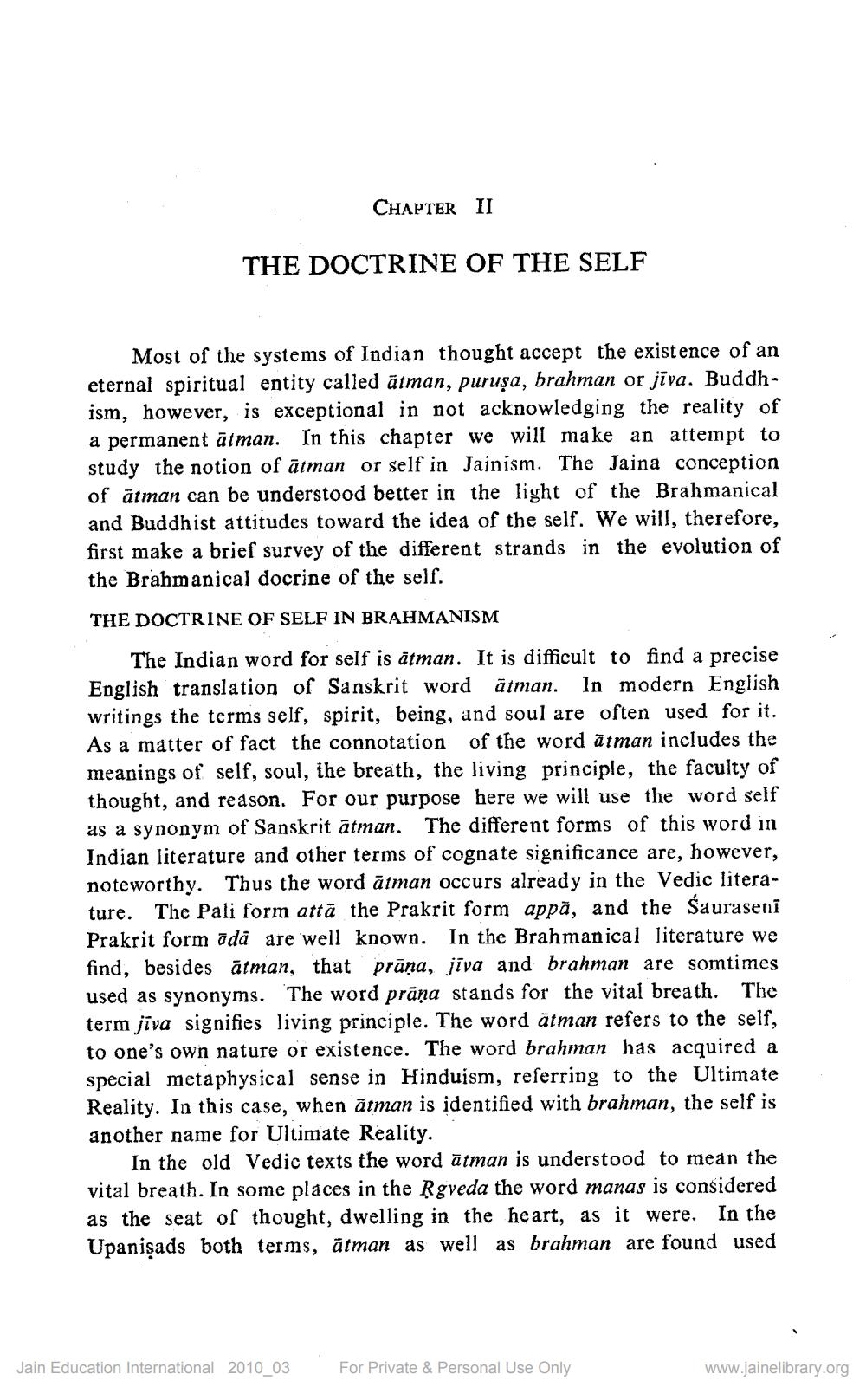________________
CHAPTER II
THE DOCTRINE OF THE SELF
Most of the systems of Indian thought accept the existence of an eternal spiritual entity called ātman, puruṣa, brahman or jīva. Buddhism, however, is exceptional in not acknowledging the reality of a permanent ātman. In this chapter we will make an attempt to study the notion of ātman or self in Jainism. The Jaina conception of ātman can be understood better in the light of the Brahmanical and Buddhist attitudes toward the idea of the self. We will, therefore, first make a brief survey of the different strands in the evolution of the Brahm anical docrine of the self.
THE DOCTRINE OF SELF IN BRAHMANISM
The Indian word for self is ātman. It is difficult to find a precise English translation of Sanskrit word ātman. In modern English writings the terms self, spirit, being, and soul are often used for it. As a matter of fact the connotation of the word ātman includes the meanings of self, soul, the breath, the living principle, the faculty of thought, and reason. For our purpose here we will use the word self as a synonym of Sanskrit ātman. The different forms of this word in Indian literature and other terms of cognate significance are, however, noteworthy. Thus the word ātman occurs already in the Vedic literature. The Pali form attā the Prakrit form appă, and the Sauraseni Prakrit form adă are well known. In the Brahmanical literature we find, besides ātman, that prāna, jīva and brahman are somtimes used as synonyms. The word prāņa stands for the vital breath. The term jīva signifies living principle. The word ätman refers to the self, to one's own nature or existence. The word brahman has acquired a special metaphysical sense in Hinduism, referring to the Ultimate Reality. In this case, when ātman is identified with brahman, the self is another name for Ultimate Reality.
In the old Vedic texts the word ātman is understood to mean the vital breath. In some places in the Rgveda the word manas is considered as the seat of thought, dwelling in the heart, as it were. In the Upanişads both terms, ātman as well as brahman are found used
Jain Education International 2010_03
For Private & Personal Use Only
www.jainelibrary.org




